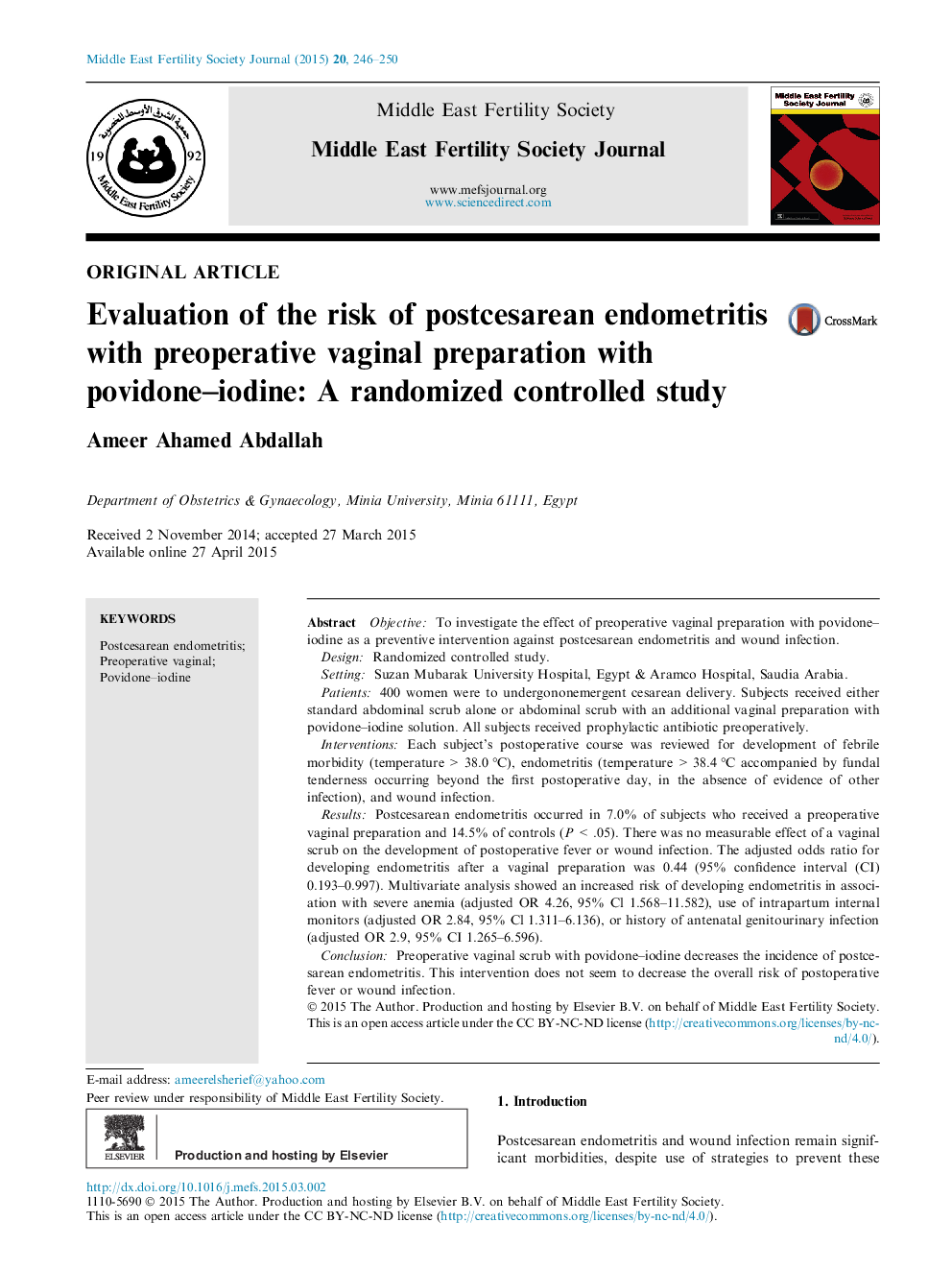| Article ID | Journal | Published Year | Pages | File Type |
|---|---|---|---|---|
| 3966083 | Middle East Fertility Society Journal | 2015 | 5 Pages |
ObjectiveTo investigate the effect of preoperative vaginal preparation with povidone–iodine as a preventive intervention against postcesarean endometritis and wound infection.DesignRandomized controlled study.SettingSuzan Mubarak University Hospital, Egypt & Aramco Hospital, Saudia Arabia.Patients400 women were to undergononemergent cesarean delivery. Subjects received either standard abdominal scrub alone or abdominal scrub with an additional vaginal preparation with povidone–iodine solution. All subjects received prophylactic antibiotic preoperatively.InterventionsEach subject’s postoperative course was reviewed for development of febrile morbidity (temperature > 38.0 °C), endometritis (temperature > 38.4 °C accompanied by fundal tenderness occurring beyond the first postoperative day, in the absence of evidence of other infection), and wound infection.ResultsPostcesarean endometritis occurred in 7.0% of subjects who received a preoperative vaginal preparation and 14.5% of controls (P < .05). There was no measurable effect of a vaginal scrub on the development of postoperative fever or wound infection. The adjusted odds ratio for developing endometritis after a vaginal preparation was 0.44 (95% confidence interval (CI) 0.193–0.997). Multivariate analysis showed an increased risk of developing endometritis in association with severe anemia (adjusted OR 4.26, 95% Cl 1.568–11.582), use of intrapartum internal monitors (adjusted OR 2.84, 95% Cl 1.311–6.136), or history of antenatal genitourinary infection (adjusted OR 2.9, 95% CI 1.265–6.596).ConclusionPreoperative vaginal scrub with povidone–iodine decreases the incidence of postcesarean endometritis. This intervention does not seem to decrease the overall risk of postoperative fever or wound infection.
